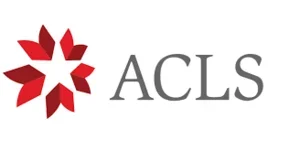Bennington College Awarded 2022 ACLS Sustaining Public Engagement Grant
This grant was made possible by support from the National Endowment for the Humanities Supports Outstanding Publicly Engaged Humanities Programs.

Bennington College has received an ACLS Sustaining Public Engagement Grant as part of a $3.5 million responsive funding program made possible by the National Endowment for the Humanities (NEH)’s Sustaining the Humanities through the American Rescue Plan (SHARP) initiative.
Bennington has been awarded $203,720 for the project The Life Sentence: Prison Education After the Degree. Supported by Bennington's Prison Education Initiative (PEI), the project seeks to make the humanities more accessible to those serving life sentences in the United States. This project centers literature and history as opportunities for those serving life sentences to deeply engage in inquiry, creativity, and human dignity. Through innovative curricular offerings and extracurricular programming, it will overcome the headwinds of COVID-19 and develop a national model for opening the humanities to the unique needs and aspirations of those serving life sentences today.
This project partners with New York State Department of Corrections and Community Supervision (DOCCS) and the administration of Great Meadow Correctional Facility in Comstock, NY. This project also remains in ongoing conversation with the Bard Consortium for the Liberal Arts in Prison and the New York Consortium for Higher Education in Prison.
The members of the principal project team are Associate Director of CAPA David Bond, Director of PEI Annabel Davis-Goff, and Assistant Director of CAPA Aila West.
“Learning seeds human dignity. Support from ACLS allows us to cultivate and center learning opportunities for a population that too often disappears in the shadows of the American carceral state: men and women serving life sentences,” said David Bond.
“We are very grateful for the support ACLS has given us, and for the opportunities it gives to offer an increased level of higher education to this dramatically unserved population,” said Annabel Davis-Goff.
“Support from ACLS will help us recapture the momentum we held in early 2020, now infused with the insights of persevering through the pandemic, and enable PEI to secure faculty and staff adequate to the need of engaging men inside the classroom and beyond,” said Aila West.
The ACLS Sustaining Public Engagement Grants support public humanities programs based at accredited United States colleges and universities that have experienced staffing reductions related to pandemic conditions, programming setbacks, and/or loss of institutional capacity for publicly engaged work.
Bennington is one of 24 grantees, represent outstanding public programs based at a variety of public and private institutions from 18 states and Puerto Rico. Awarded programs have demonstrated a deep commitment to the co-creation of knowledge with diverse communities outside of academia and promising approaches to addressing the most pressing issues our society faces today.
“The National Endowment for the Humanities is grateful to the American Council of Learned Societies for administering American Rescue Plan funding to speed economic recovery within the higher education sector,” said NEH Chair Shelly C. Lowe (Navajo). “Our colleges and universities are important centers for public humanities, with immense potential to serve their communities through educational resources and public programs that reach broad audiences. These ARP awards will expand public access to new information and discoveries in the humanities, and foster greater collaboration between academic institutions and community partners.”
“ACLS is proud to support these outstanding examples of publicly engaged, community-centered scholarship,” said ACLS President Joy Connolly. “Direct engagement with communities beyond the walls of academia is essential to the continued creation of knowledge for the public good. At the same time, these programs will help in expanding our definitions of humanistic scholarship and in contributing to solutions for a brighter future for all.”
The American Rescue Plan Act of 2021 appropriated supplemental funding to the NEH to provide emergency relief to cultural organizations and educational institutions and organizations working in the humanities that have been adversely affected by the coronavirus pandemic. The Act recognizes that the humanities sector is an essential component of economic and civic life in the United States.